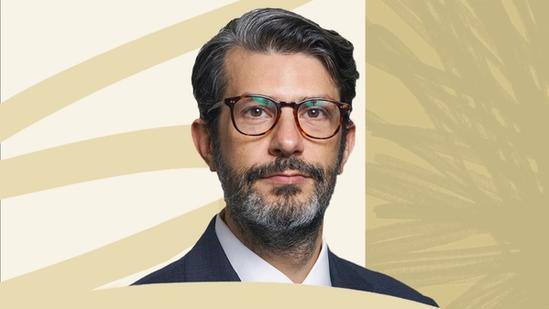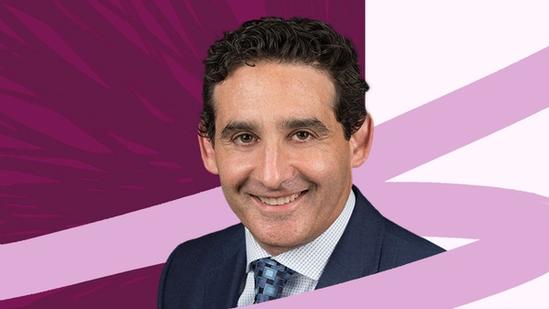Eric Liu: The Transformative Impact of Healthcare Companies


Eric Liu, Head of North American Private Equity and Global Co-Head of the Healthcare sector team, on the importance of finding the companies at the forefront of improving healthcare in the U.S.
When most people think of healthcare in the U.S., they picture their local doctors, hospitals, or clinics – the frontline providers delivering care and often serving as cornerstone employers in their local communities. While these institutions are important, there is a larger healthcare ecosystem of companies that might not be as well-known but are instrumental in driving innovation and enhancing the quality and accessibility of healthcare.
As Head of North American Private Equity and Global Co-Head of the Healthcare sector team, I have witnessed firsthand the transformative impact these specialized companies have on our healthcare system. They develop and manufacture cutting-edge medical devices addressing cardiovascular disease, osteoarthritis, diabetes, and more. There are companies that develop life science tools used by academic medical research centers or commercial laboratories to identify revolutionary new drugs. Some firms provide support in navigating the regulatory process to bring groundbreaking innovations to market. There are technology companies helping healthcare providers manage the complexity of the U.S. healthcare system, allowing them to spend more time with patients and less time on paperwork.
The companies with truly differentiated offerings tend to have more durable business models and make for good investments. But this isn’t just about financial returns – it’s about fueling innovations that lead to better patient outcomes and an improved healthcare system.
Consider Parexel, a global leader in the outsourced clinical research sector that we acquired in 2021. With over 20,000 dedicated employees, Parexel accelerates the journey of new drugs from concept to FDA approval, ultimately bringing life-saving treatments to patients more quickly. Their work is pivotal in transforming scientific discoveries into tangible healthcare solutions that can reach broad patient populations.

Another example is Zeus, a recent addition to our portfolio. Zeus manufactures custom components for state-of-the-art medical devices used in minimally invasive surgeries. Some of their products are thinner than a human hair and need to be manufactured to extraordinarily high standards. These components are essential for procedures that reduce patient recovery times and improve surgical outcomes.
These essential companies require more than just capital; they need partners who understand their unique role within the healthcare ecosystem and possess the expertise required to scale their businesses to the next level.
When I joined EQT in 2014, some of the largest private equity firms either did not invest in healthcare or their partners that covered healthcare only did it on a part-time basis, due to the sector’s regulatory complexities and the deep expertise required to navigate the space effectively. However, we saw this as an opportunity.
“These essential companies require more than just capital; they need partners who understand their unique role within the healthcare ecosystem and possess the expertise required to scale their businesses to the next level. ”
With a strong track record in European healthcare, which comprised approximately 25 percent of our historical investments, we identified healthcare as the logical focus for our U.S. market entry for our private equity business line. In 2016, EQT made its first U.S. private equity investment in Press Ganey, the data analytics pioneer helping healthcare providers improve the patient experience. At that point, it was the largest-ever equity check committed by an EQT private equity fund to a single company, which was daunting for me as a new partner. Fortunately, the investment was very successful and reinforced our commitment to the sector.
Meanwhile, other private equity firms started increasing their focus on healthcare as it became impossible to ignore, representing 18 percent of the U.S.’s GDP. Most peers have healthcare providers as a core part of their strategy. In contrast, EQT’s investment strategy remains highly focused on four sub-sectors: medical devices, life science tools, outsourced pharmaceutical services, and healthcare information technology.
Within these niche sectors, each with its own set of competitors, industry experts, and regulations, we look to invest in market leaders where leadership might be defined as the largest player, the most reputable, or highly innovative. By backing such market leaders, we can attract the strongest management teams and board members, thus positioning ourselves to execute a differentiated value-creation strategy.
A standout example of this approach is our investment in Aldevron, a market leader in manufacturing plasmid DNA, a critical component in a new type of innovative medicine called gene therapy. Co-founded by Michael Chambers, an incredible entrepreneur and visionary, Aldevron was poised for significant growth. We acquired a majority stake in Aldevron for $3.4bn in 2019 when Michael realized he needed more support to scale his business. We elevated him to Executive Chairman and recruited Kevin Ballinger as CEO while building out a world-class management team and board of directors. We also invested $100m to build new manufacturing facilities. During the COVID-19 pandemic, Aldevron played an important role by supplying a key raw ingredient for Moderna’s vaccine. In 2021, we sold Aldevron to Danaher for $9.6bn, making it one of EQT’s top healthcare exits.
EQT’s philosophy is straightforward. Choose promising markets, back great management teams, and drive significant and differentiated value creation for equity investors, or what we call “alpha” in our industry. We believe this strategy can yield more than potentially strong returns; it can also help support a better society.
We are applying this same strategy with Zeus, which we acquired a few months ago. Zeus had been a family-owned business for 50 years, and we acquired the company in a competitive process with the intent to professionalize the business under our ownership. We recruited a new board of directors as well as a completely new management team. We plan to invest significant capital to upgrade their systems and processes while also adding production capacity so we can help the company scale to the next level.
In a sector as critical as healthcare, EQT’s investment focus is different. We invest in market-leading companies in the medical devices, life sciences, outsourced pharmaceutical services, and healthcare information technology sectors. By investing in companies that we believe can enable medical breakthroughs and improve system inefficiencies, we are not only capitalizing on robust investment opportunities but also contributing to better patient outcomes around the world.
At EQT, we believe that leadership in private equity is measured not only by financial success but also by the positive impact we have on our communities. By supporting these innovators working tirelessly to improve the healthcare system, we are committed to driving meaningful change – one investment at a time.
Eric Liu is a Partner, Head of North American Private Equity, and Co-Head of Global Healthcare Sector Team, based in New York. He is a member of the Equity Partners Investment Committee and joined EQT Partners in July 2014. Prior to joining EQT Partners, he was a Principal at Warburg Pincus where he was responsible for private equity investments in the healthcare industry. Previously, he worked in private equity at The Blackstone Group and in venture capital at Draper Fisher Jurvetson.
ThinQ is the must-bookmark publication for the thinking investor.





